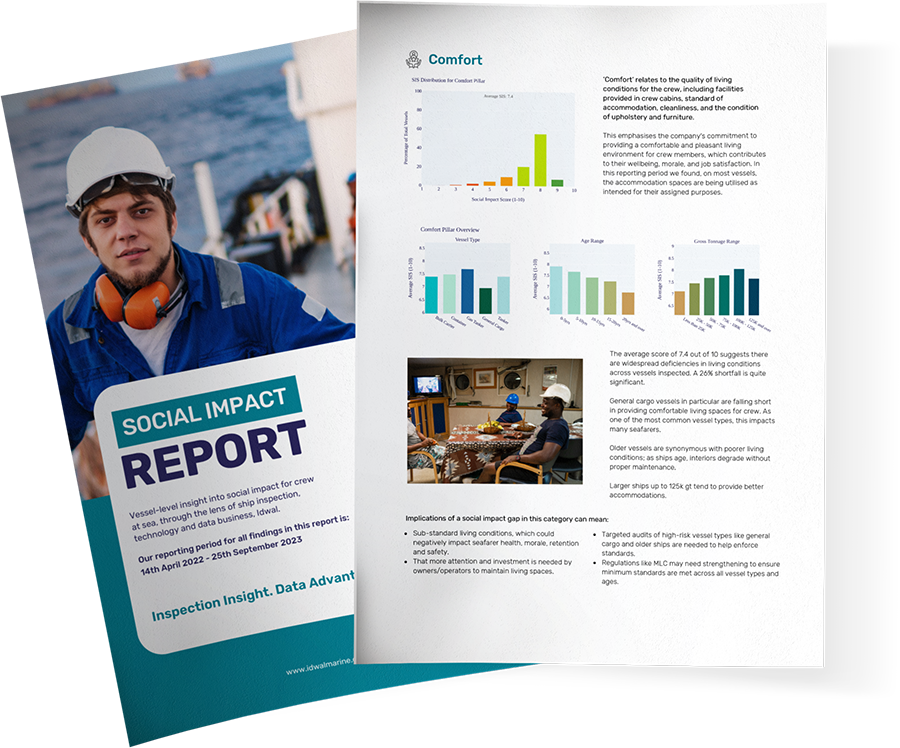The maritime sector accounts for 3% of global greenhouse emissions and with the current focus of Environmental, Social, and Corporate Governance (ESG) many organisations worldwide are seeking ways to both reduce their carbon footprint and increase their environmental responsibility throughout their operational structure. A key initiative of the IMO is to reduce Sulphur Oxide emissions, which are known to be harmful to human health and a causing factor of acid rain (which can harm crops, forests, and ocean life), through the use of Low Sulphur Fuel Oils. Environmental goals can be met by streamlining all aspects of operations, including the inspection or management of a vessel.

Greenhouse gas emissions from commercial air travel are growing at a faster rate than predicted according to research from the International Council on Clean Transportation, with the aviation sector accounting for 2.7% of global greenhouse gas (GHG) emissions. The UN aviation body has predicted that emissions of carbon dioxide will reach 2.7 billion metric tons by 2050 after analysing nearly 40 million flights.
Using localised Marine Surveyors in the routine condition inspections or management of your fleet can aid an organisation's internal environmental goals through cutting out air travel altogether.
The utilisation of a non-localised Marine Surveyor to serve international ports is both impractical and detrimental to the environment through frequent air travel. Taking a surveyor based in the UK conducting two surveys a month at the port of Gdansk as an example, they can produce upwards of 10 tonnes of carbon emissions across the course of a year. A local surveyor living within 20km of a port and utilising personal transport will emit just under 120kg of CO2 per year. The Idwal surveyor network provides our clients with a domiciled surveyor in over 180 ports, across 60 countries, allowing clients to ensure that they can maintain operations and the maintenance of their fleets, whilst also ensuring the carbon footprint of these actions are minimal.
Nick Owens, CEO of Idwal said:
“Companies who really want to make a difference as a part of their overall ESG commitment should really think twice about sending their resources long distances to achieve what are very easily-outsourceable tasks. Using a global inspection company with a local footprint for a sustained period of time across all routine fleet inspections can deliver tangible improvements to the carbon footprint of your business as well as a real cost saving to the bottom line”.
“Useful tools such as carbonfootprint.com and the International Civil Aviation Organisation’s carbon calculator allow you to measure your carbon footprint for air, car, and public transport travel, as well as being able to calculate your secondary footprints using total spend over multiple categories such as IT equipment and manufactured goods. This can become a really nice KPI for your business and shows real actionable commitment, rather than just words”
Using the Carbon Footprint website to calculate personal CO2 emissions for 24 return flights a year from London Heathrow to Gdansk.
Idwal and ESG
At Idwal, ESG is assessed during our vessel inspections as a matter of routine and has been for some time. It is nothing new to us, but we recognise that as it grows in importance, we have to evolve our inspection processes to keep up with the latest in changing ESG-focused regulations.
Important items such as United States Environmental Protection Agency (EPA) Vessel General Permit (VGP) compliance, Inventory of Hazardous Materials (IHM) certification, Ballast Water Management (BWM) Convention compliance, crew welfare factors, Port State Control inspection performance, implementation of onboard environmental procedures, IMO 2020 (low sulphur fuel) compliance and energy efficiency measures (EEDI), and many more factors are assessed as a routine practise throughout all our inspections.
Idwal is working on a number of ESG compliance and assessment initiatives which will be shortly available to all our clients, utilising our extensive global network to deliver ESG assessments both at sea and ashore.
Keep an eye on the Idwal feeds for more developments within this important sector, or speak to your account manager today to find out more.









